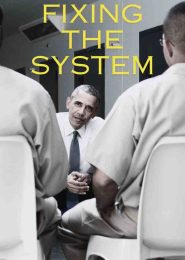The Truth Behind Capitalism (2015)
Capitalism, the economic system that dominates our world, is often seen as a given, something as natural as the air we breathe. But have you ever stopped to think about its origins and effects? The 2015 documentary The Truth Behind Capitalism does just that, and here’s why it matters to you.
The film starts with a bold statement: capitalism is on the brink. Do you know why? It’s because of the inherent contradictions within the system itself. The documentary, drawing from Karl Marx’s critiques, suggests that capitalism’s focus on individual profit over community well-being leads to instability and inequality. But wait, let me tell you something, it’s not just a theory. The documentary presents real-world evidence of these issues, such as the 2008 financial crisis and the Occupy Movement.
Now, you might be asking yourself, how does this affect me? Well, think about it. The economic system you live in shapes everything from your job opportunities to the prices you pay for goods. And it doesn’t stop there. The documentary argues that capitalism affects global wellness, with its competitive nature leading to environmental degradation and social strife.
The film suggests that socialism, with its emphasis on cooperation and community, could be the answer. It highlights how countries like Iceland and Greece are exploring new economic models in the wake of capitalism’s failures.
So, what does this mean for you? It means that there’s hope for a system that prioritizes people and the planet over profit. And the good news? You’re not alone in this thought. The documentary shows that across the world, there’s a growing movement of people seeking a more equitable and sustainable future.
To sum up, the documentary is a powerful exploration of capitalism’s flaws and the potential for change. It’s a conversation starter, a spark for debate, and, most importantly, a reminder that another world is possible. So give it a go, watch the documentary, and join the conversation about the future of our economy. Because, in the end, it’s not just about understanding capitalism—it’s about shaping the world we want to live in.




